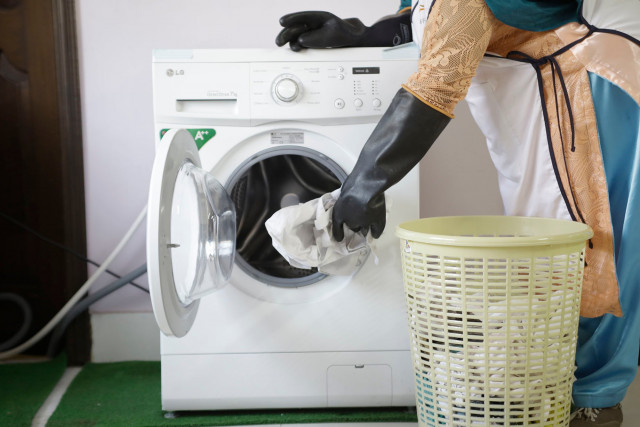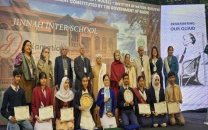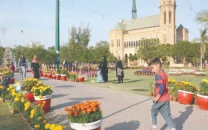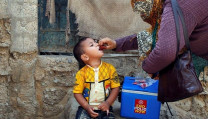Carving out a path toward financial stability for women
Charitable organisation's training programme helps domestic workers find well-paying jobs

The organisation trains women to become skilled domestic workers. PHOTO: TAF FOUNDATION
The TAF Foundation (TAFF) works in the fields of education, health and social consciousness. In an ongoing initiative since November, 2016, it has trained scores of women in housekeeping and cooking and has also taught them about legal and financial empowerment, professionalism, ethics and value systems.
Sultana Abdul Aziz, who has benefited from the initiative, tells The Express Tribune that she used to work as domestic servant at five houses and made a measly Rs5,000 a month.
But after she enrolled in the TAFF programme and received training, she has found work at a bungalow in Garden are and makes about Rs30,000 a month.
PML-N MPA's daughter granted bail in domestic helper torture case
"Now, people respect me too," she says. "In a society like ours it's very difficult for a woman to survive alone and it's a pity that we are respected by what we earn," she explains.
"This organisation [TAFF] has not only helped me improve my financial position but also instilled confidence in me, because a decade ago a woman who could not even leave the house alone can now travel in the city all alone," she says.
Aziz believes every woman needs to be independent and financial stability plays a big part in that.
"I have a child with special needs and my husband left me for another woman. A good income has made a great impact on my life," she said.
Eighteen-year-old Urooj Fatima, another graduate of the TAFF programme, who found a job at a popular fast food chain restaurant, said the training laid a good foundation, which helped her find a job.
"I learnt everything about my work during training. It was rigorous training under the leadership of professionally-trained academic staff," the Lyari resident says.
Housemaid uses poetry to tell her tale
Speaking about the idea behind launching the programme, Aatiqa Lateef, the chief executive officer of TAFF, says that when she moved to Pakistan from the United States she had trouble finding a trained domestic helper and that caused her a great deal of stress.
"Being a working woman, I juggled work and household responsibilities," she recalls. Based on experience looking for domestic help, Lateef decided to launch a programme to train women in the field and also provide them placement in homes.
"Initially, when we launched the pilot project in November, 2016 we faced many hurdles because many people thought we were involved in women trafficking," says Lateef. "We always put women in a secure environment and also give them a stipend so that they can focus on training and learning."
The CEO adds that they also help the participants get jobs, make sure that they do not work more than 48 hours a week and earn at least Rs25,000 per month. "We don't want them to be exploited," she says.
There are thousands of women who work as domestic helpers in the country but they are not documented. Thus, there is no law to protect them, says Lateef.
Sindh raises its voice for murdered girls
According to her, a lot of women from the Philippines, Bangladesh and Sri Lanka work as domestic helpers and earn a minimum of Rs40,000 a month because they are trained in house work.
"For educated families and working women, untrained helpers cause so much stress," she says.
Her programme focuses on local women who hail from underprivileged families and are searching for a decent pay and employment. "When our graduates start earning Rs30,000 a month, their problems go away," Lateef claims.
The foundation focuses on conceptualising, planning and executing sustainable programmes, which helps create upward social and economic mobility of the less privileged individuals in society. It is all set to launch its programme in Lahore and Islamabad too.
"Every woman wants to change her life for the better and it's their right to live a secure and happy life," Lateef says.



















COMMENTS
Comments are moderated and generally will be posted if they are on-topic and not abusive.
For more information, please see our Comments FAQ